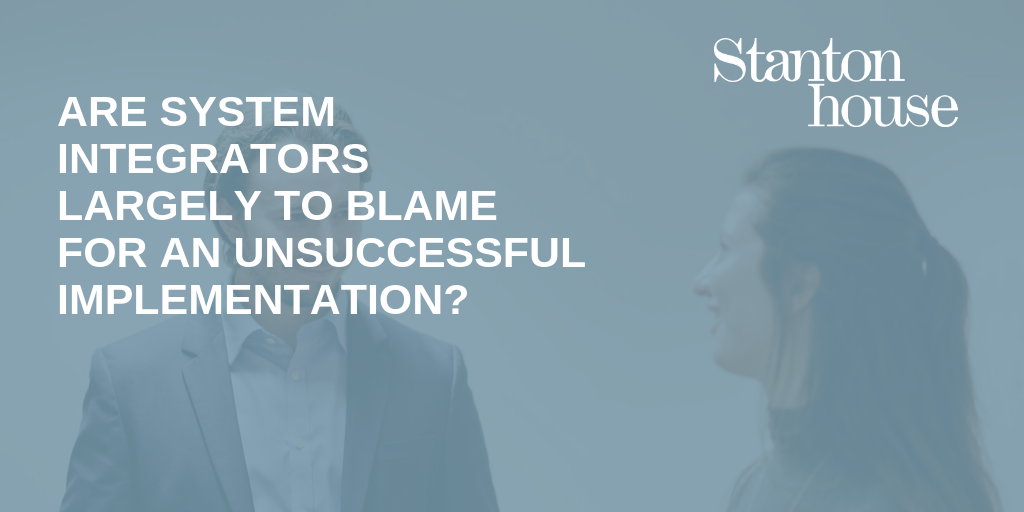

In a failing transformation programme, blame is often allocated in several directions: Sponsor Engagement, Investment and Third Party Responsibility but, should System Integrators get a share of the blame?
The System Integrator (SI) is often allocated a large portion of the blame for failing to fit the configuration to the business requirements in the first instance, leading to a rocky UAT phase and failure at go-live.
While I agree that a lot of responsibility falls upon the SI, I do believe that customers should take equal responsibility in their own transformation.
Clients who hastily engage on system implementations without first doing an assessment of their own digital readiness are equally responsible if their implementation fails because ultimately, it’s their responsibility to ensure their organisation is up to scratch in terms of data quality, engagement and system readiness.
Aside from the obvious reasons of not wanting an Integration to fail, System Integrators are expensive in terms of upfront costs and billable time.
With this in mind, I will always urge Finance Transformation sponsors within my network to adopt a more blended approach to their team building in the lead-up to as well as during an ERP implementation.
For me, this brings together Internal Permanent assistance and Interim Transformation Specialists who can sit with the client for maximum value-add and carry the business through change – after the go-live.
I’d like to hear your thoughts. Can we hold System Integrators responsible for unsuccessful implementations or does the fault lie within the organisation not ready for change?
Latest opportunities
Up to £400.00 per day
Dorking, Surrey
Up to £400.00 per day
Dorking, Surrey
Up to £60000 per annum + 20% bonus
Hertfordshire
Similar blogs



.jpg)

.png)

